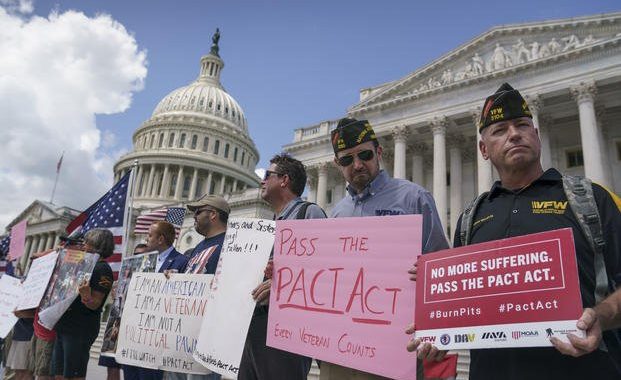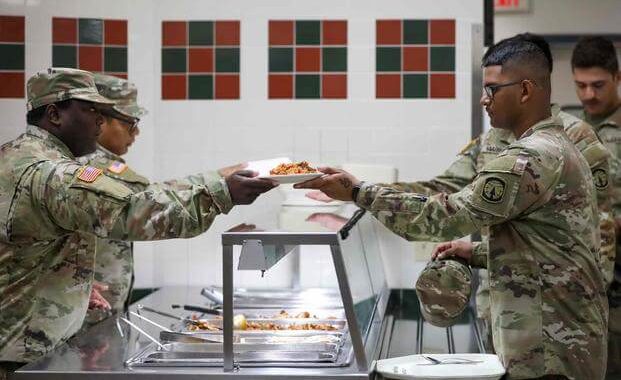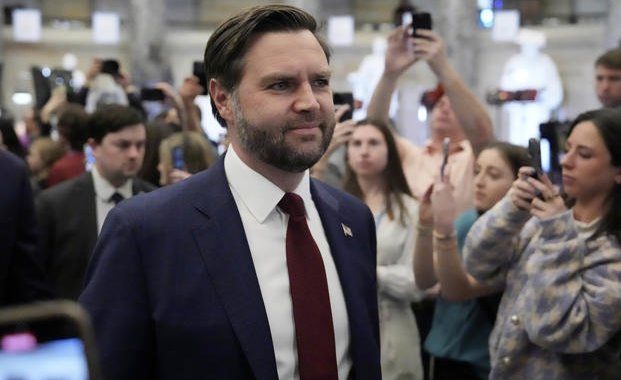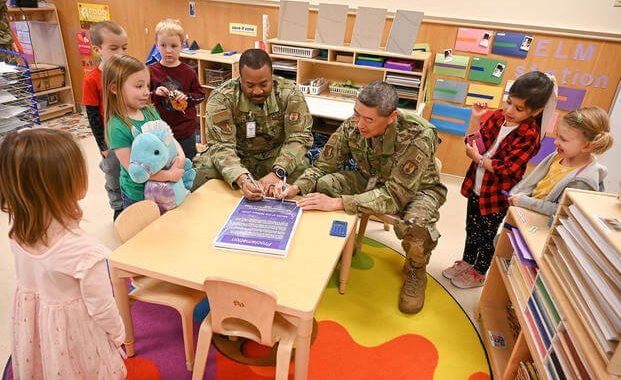New Poll Shows Boost of Confidence in Military Driven by Republicans and Trump’s Election
4 min read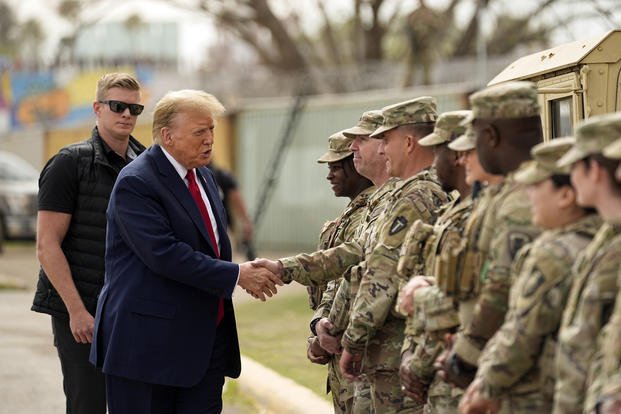

The American public’s confidence in the military rose this year after Republican sentiment turned around following President-elect Donald Trump’s victory in the November election, according to the latest version of an annual defense survey from the Ronald Reagan Presidential Foundation and Institute.
Overall this year, 51% of respondents said they had “a great deal” of confidence in the military, stemming years of declining confidence, according to survey results released Thursday. By comparison, in last year’s survey, 46% had great confidence.
The bump this year was driven by Republicans, specifically Trump supporters. While Democrats’ confidence in the military stayed the same year-over-year, the poll, which was conducted after the election, found 56% of Republicans had a great deal of confidence in the military this year compared to 48% last year. There was also an 8-point jump in confidence among self-identified Trump voters from last year to this year.
“To a large degree, confidence in the military does have to do with questions of politics,” Rachel Hoff, policy director at the Ronald Reagan Institute, told reporters on a conference call. “Who’s in the White House probably matters most among partisans for a baseline level of confidence.
“And so some of that rebound among Republicans probably,” she added, is “anticipating a Republican return to the White House.”
The bounce in confidence reflected in the Reagan Institute survey follows other polls finding similar increased confidence in public institutions post-election despite no material changes to the institutions since the election. For example, a Gallup poll released last week showed confidence in the economy was up, with Republicans driving the increase.
The percentage with great confidence in the military this year is still lower than the peak of 70% in the Reagan Institute survey’s first iteration in 2018. But it’s the highest confidence has been since February 2021, when 56% said they had a great deal of confidence. And great confidence in the military continued to outpace every other institution in the survey by 17 to 42 points, depending on the institution.
The decline depicted over the years by the Reagan Institute survey aligned with findings in other surveys, such as a Gallup poll last year showingconfidence in the military hitting a two-decade low.
Questions in past versions of the Reagan survey indicated that the drop in confidence was correlated with increased perceptions of the military becoming politicized, with Republicans more likely to share those perceptions than Democrats.
“The decline in confidence, when we several years ago started to really dig into the ‘why’ for that 25-point decline in confidence, all had to do with politicization,” Hoff said. “Americans on the right thought the military was too woke. Americans on the left thought the military was full of extremists. And on both sides of the aisle, people thought the military’s leadership was politicized.”
For the last four years, since President Joe Biden took office, conservative lawmakers and media personalities have amplified accusations that progressive, or “woke,” ideologies were infiltrating the military at the expense of preparing service members for war. While struggling to offer evidence of the military favoring diversity over skill, conservatives criticized policies such as allowing transgender troops to serve openly and providing travel reimbursement to troops seeking abortions.
Trump has vowed to undo any left-wing military policies and fire so-called “woke” generals. He is widely expected to roll back the transgender and abortion policies.
The decline in confidence in the military also coincided with nearly every branch of the military struggling to achieve their recruiting goals. Republicans have blamed the “woke” military policies for turning off potential recruits even as the Pentagon insisted other factors such as a strong economy were to blame.
This year’s Reagan Institute survey also found an increase in willingness to serve in the military in its core recruiting demographic, with Republicans appearing to drive the increase there too. Last year, 32% of respondents aged 18 to 29 said they were extremely, very or somewhat willing to serve, with 42% of Republicans saying so. This year, 36% said they were willing to serve, including 47% of Republicans.
The survey was conducted from Nov. 8 to Nov. 14 by a bipartisan team from Beacon Research and Shaw and Company Research. Pollsters reached 2,510 adults with a mix of live telephone interviews and online surveys, and results were weighted based on U.S. demographics. The survey has a margin of error of 2% for the entire sample and 3% for some subgroups.


